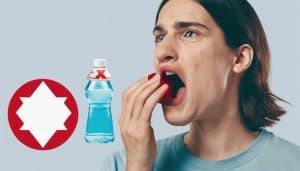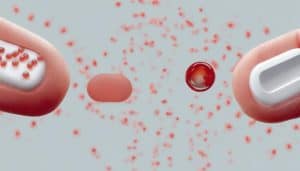You can greatly reduce tooth pain after a filling by taking proactive steps. To manage sensitivity, avoid extreme temperatures, chew on the opposite side, and maintain good oral hygiene. Topical remedies like benzocaine gel, clove oil, and vanilla extract can help reduce pain. Practice gentle oral hygiene with a soft-bristled toothbrush and lukewarm salt water. Avoid irritants, such as hot and cold foods, and triggers like acidic foods and sugary treats. By following these tips, you'll be on your way to relieving tooth pain. To get the most effective relief, explore these methods in more detail and discover how they can work together to promote long-term oral health. It’s also important to follow up with your dentist regularly to monitor the filling and ensure it is functioning properly. They can provide additional treatments or adjustments if necessary. Understanding the cavity progression timeline can help you anticipate and prevent future tooth pain. By staying proactive and informed, you can prioritize your oral health and prevent discomfort in the long run.
Key Takeaways
• Manage sensitivity by avoiding extreme temperatures, opting for lukewarm or room-temperature options, and chewing on the opposite side of your mouth.
• Reduce pain with topical remedies like benzocaine gel, clove oil, vanilla extract, and over-the-counter numbing gels with lidocaine.
• Practice gentle oral hygiene with a soft-bristled toothbrush, cautious flossing, and lukewarm salt water rinses to avoid irritating the affected area.
• Avoid irritants and triggers like hot and cold foods, acidic foods and drinks, sugary treats, and tobacco products to reduce pain after dental work.
• Seek professional dental care by scheduling an immediate appointment with a dentist to receive a detailed assessment and personalized treatment recommendations.
Manage Sensitivity With Care
To manage sensitivity after a filling, you can take steps to minimize discomfort and promote a smooth recovery. As a common experience for many dental patients, tooth sensitivity can be a nuisance, but it's vital to address it promptly to prevent further oral health issues.
After a filling, it's important to avoid extreme temperatures that can trigger pain. Refrain from consuming extremely hot or cold foods and drinks, as they can exacerbate sensitivity. Instead, opt for lukewarm or room-temperature options to reduce discomfort.
When eating, try chewing on the opposite side of your mouth to minimize pressure on the filling site. Additionally, maintain good oral hygiene by gently brushing and flossing to prevent further irritation. By taking these precautions, you can reduce sensitivity and promote a faster recovery.
Reduce Pain With Topical Remedies
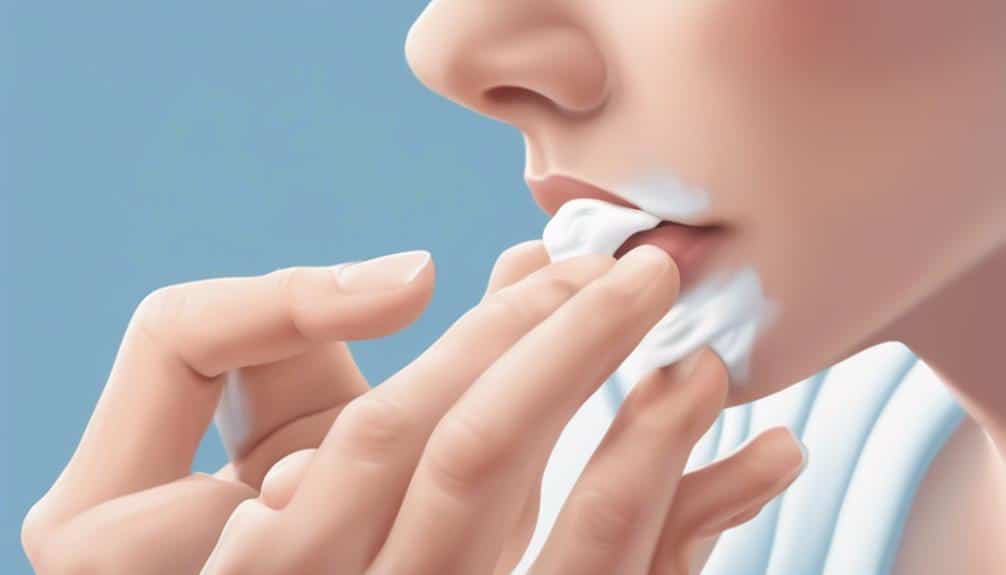
Benzocaine gel, clove oil, and vanilla extract are just a few topical remedies that can help reduce pain and discomfort after a filling, offering a welcome respite from the throbbing sensation that can disrupt your daily routine.
These topical remedies can provide quick and effective relief from tooth pain after a filling. For instance, benzocaine gel can numb the area around the filling site, reducing sensitivity and discomfort. Clove oil, with its natural analgesic properties, can also help alleviate tooth pain. Even a small amount of vanilla extract applied to the affected area can bring relief.
If you need more intense pain relief, over-the-counter numbing gels containing lidocaine or prescription-strength topical anesthetics from your dentist can provide intense pain relief.
Practice Gentle Oral Hygiene
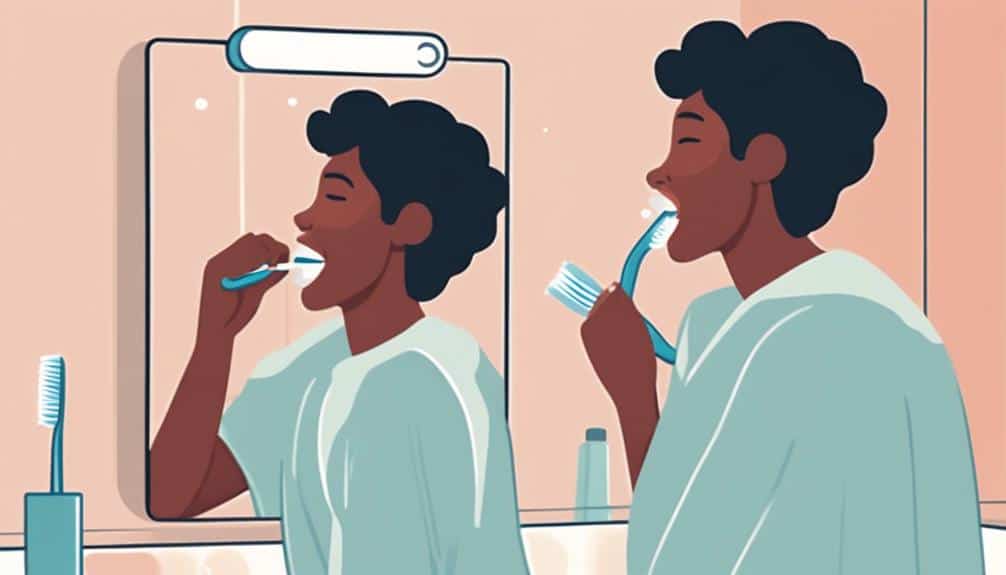
You should adopt a gentle oral hygiene routine to promote healing and minimize discomfort after a filling, focusing on careful brushing and flossing techniques to avoid irritating the filled tooth and surrounding area. This is important in preventing pain after dental fillings and promoting excellent oral hygiene.
| Oral Hygiene Tips | Description |
|---|---|
| Soft-bristled toothbrush | Use a soft-bristled toothbrush to gently clean the filled tooth and surrounding area. |
| Cautious flossing | Be cautious while flossing near the filled tooth to avoid dislodging the filling. |
| Lukewarm salt water rinse | Rinse your mouth with lukewarm salt water to promote healing without causing irritation. |
| Avoid harsh mouthwashes | Avoid vigorous brushing or harsh mouthwashes that can exacerbate pain or sensitivity. |
| Follow dentist's instructions | Follow your dentist's post-filling care instructions to maintain oral hygiene without causing discomfort. |
Avoid Irritants and Triggers
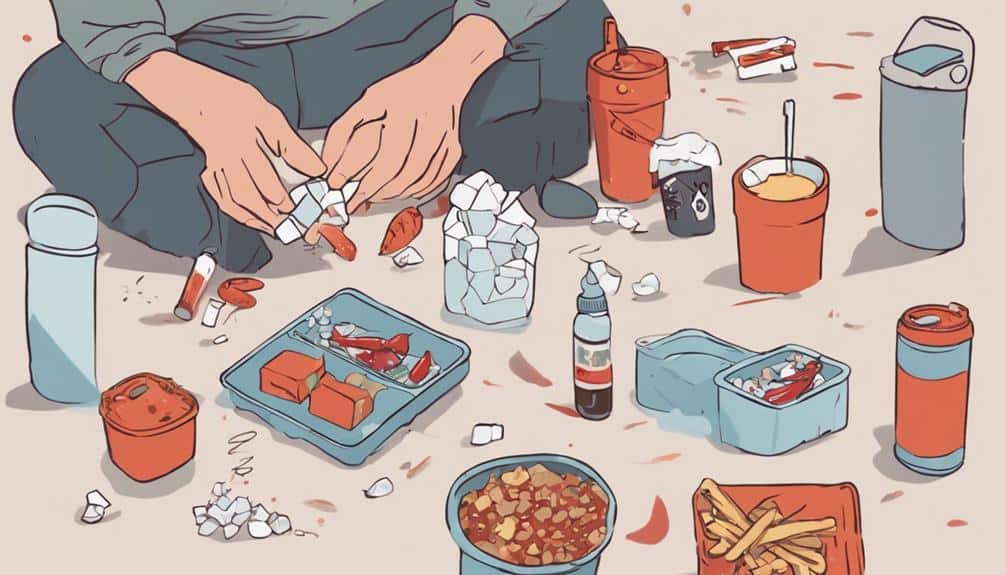
After establishing a gentle oral hygiene routine, it's equally important to identify and avoid specific irritants and triggers that can exacerbate tooth pain after a filling. You need to steer clear of hot and cold foods and beverages that can trigger sensitivity in the filled tooth.
Avoid using your teeth as tools or biting down on hard objects, as this can dislodge the filling material used and cause pain. Also, refrain from consuming acidic foods and drinks, sugary treats, and tobacco products, which can worsen tooth pain after a filling. These substances can erode tooth enamel, leading to sensitivity and discomfort in the area around the filling.
By avoiding these common causes of sensitivity, you can reduce pain after dental work and promote good oral health. Remember, you don't need a root canal to fix tooth pain; sometimes, it's just a matter of making a few lifestyle adjustments.
Seek Professional Dental Care

When persistent tooth pain after a filling persists, schedule an immediate appointment with a dentist for a thorough evaluation and proper treatment. This is important in identifying the underlying cause of the pain and receiving effective pain relief.
By seeking professional dental care, you'll benefit from a detailed assessment of your oral health. A dentist can assess the cause of the tooth pain after filling and recommend the best course of action.
Here are three key reasons why timely intervention by a dentist is essential:
- Accurate diagnosis: A dentist can identify any underlying issues contributing to the tooth pain.
- Personalized treatment: Based on the diagnosis, a dentist can recommend the most suitable treatment, including adjustments to the filling, medication for pain relief, or further procedures if necessary.
- Long-term oral health: Professional dental care ensures proper management of tooth pain after a filling, preventing worsening of the pain and promoting long-term oral health.
Don't delay – schedule an appointment with a dentist today to address your tooth pain and promote long-term oral health.
Frequently Asked Questions
How to Stop Tooth Pain After a Filling?
As you navigate the uncharted territory of post-filling discomfort, remember that relief is within reach.
To stop tooth pain after a filling, you'll need to adopt a multi-pronged approach. First, hydrate thoroughly to flush out bacteria and keep your mouth moist.
Next, apply a cold pack to reduce inflammation and pain. Finally, consider over-the-counter pain meds and saltwater rinses to soothe your tooth.
How Long Will a Tooth Hurt After Filling?
You're wondering how long your tooth will hurt after a filling.
Generally, you can expect sensitivity and mild discomfort to last a few days to a couple of weeks. The duration of pain varies depending on factors like the filling size, material, and your individual pain tolerance.
In most cases, the pain will gradually subside as your tooth adjusts to the new restoration.
How Do You Get Instant Relief From Tooth Cavity Pain?
Think you're doomed to suffer through tooth cavity pain? Think again! You can get instant relief from the agony.
Try rinsing your mouth with warm salt water to reduce inflammation, or apply a cold compress to numb the pain.
If that doesn't work, over-the-counter pain relievers like ibuprofen or acetaminophen can be your savior.
You don't have to suffer in silence – take control of your tooth cavity pain today!
Do and Don'ts After Tooth Filling?
After getting a tooth filling, you'll want to take good care of your teeth to prevent complications. To guarantee a smooth recovery, you should:
- Rinse your mouth with warm salt water
- Avoid extreme temperatures
- Avoid chewing directly on the filled tooth
You should also prioritize regular dental check-ups and follow your dentist's post-filling care instructions. By adhering to these do's and don'ts, you'll minimize discomfort, promote healing, and protect your new filling.

